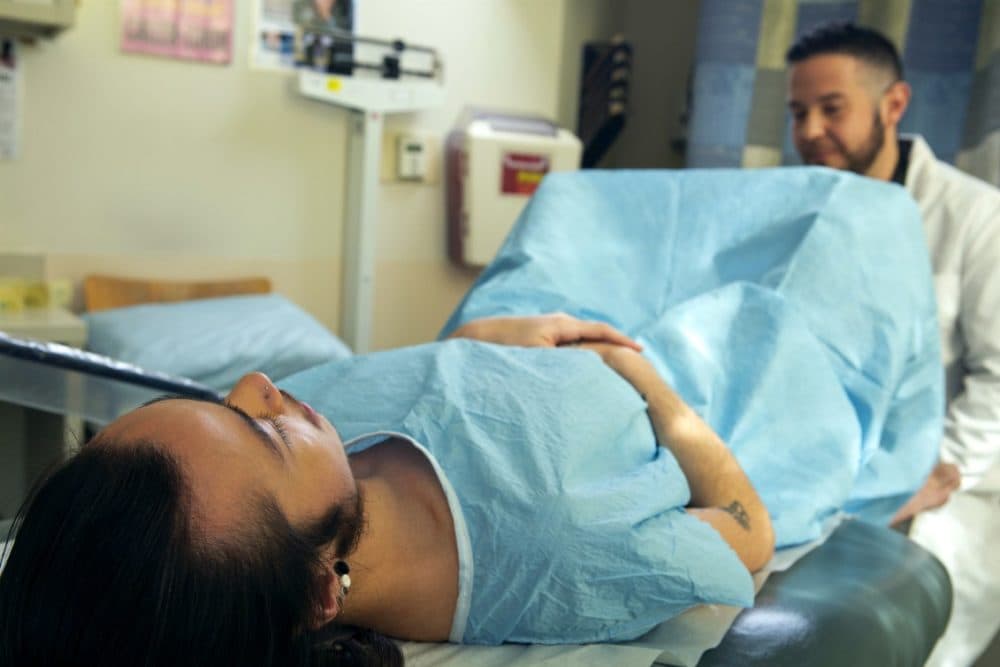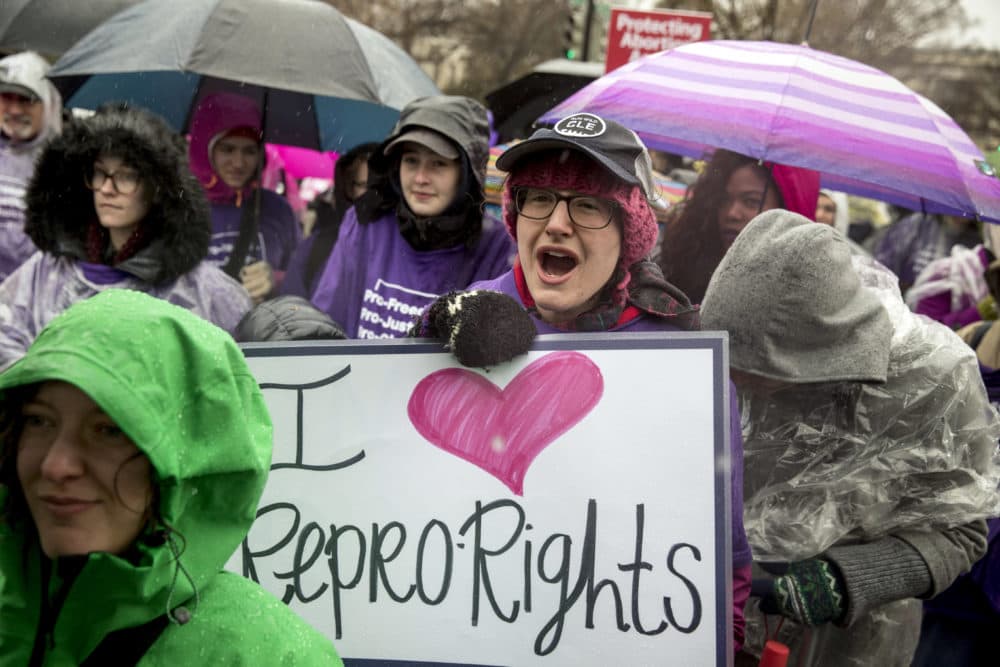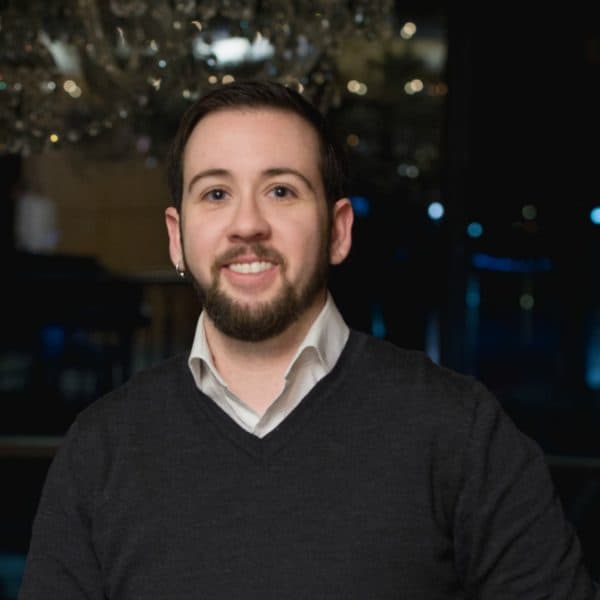Advertisement
Commentary
A Person's Right To Choose

As a teenager, I was diagnosed with debilitating endometriosis, a painful disorder in which the tissue that lines the inside of the uterus grows outside of it. I regularly passed out because of the pain. I was hospitalized and prescribed powerful pain killers that didn’t fully eliminate my agony.
At 18 years old, I came out as transgender. For me, this means I know I'm not a woman, although I was assigned female at birth. In light of my gender identity, I asked my doctor about having a hysterectomy (one treatment for endometriosis). Doctor after doctor brushed my request off because I was “too young.” They said there was no way I could know who I was — as trans — or what I wanted. I was reminded several times that I “might want kids,” even though I consistently expressed no desire to give birth. The very idea would send me into bouts of gender dysphoria.
Then, when I was 21, my endometriosis nearly killed me. I was browsing the stands at a farmers’ market, when I suddenly collapsed in indescribable pain. An ultrasound revealed that one of my ovaries had swollen to the size of a softball (it eventually grew even larger). If it ruptured, I would be unlikely to survive. Even then, it took more than a week for doctors to get me in for a surgery that saved my life.
... reproductive health is not a woman’s issue: it’s a human right.
In the midst of that medical emergency, I again asked my doctors if they would perform the hysterectomy, especially because this situation would likely happen again, given the severity of my endometriosis. And again I was denied the procedure because of the misogynistic (as well as cissexist and heterosexist) expectations on my body.
It boiled down to this simple equation: uterus = woman = exists to have babies.
I spent years jumping through hoops to manage my endometriosis. Hoops established by cisgender heterosexual men to cement their expectations on my body’s worth as a machine to make babies. It was exhausting. It was painful. And it left me with feelings of shame and guilt about my body.
Each time I asked about a hysterectomy, I was told that something must be wrong with me if I didn’t want to give birth — that everything about my gender identity, my sexual orientation and my healthcare needs were wrong, and that I should be ashamed. These feelings had such an impact that I’ve never talked about this experience publicly.

There isn’t a happy ending to this story. Some of the doctors I went to see refused, outright, to even let me in the door, because I am trans. I eventually did have a hysterectomy, at 27, but the doctor who performed the surgery expressed his “grave concerns and doubts” about my needs and my gender identity every step of the way.
I share this story because a person’s right to choose their path in reproductive health is a right I have intimate experience with. It is a right I have been denied so many times it almost killed me. And I’m not alone. My story is just one of hundreds of thousands of transgender and nonbinary people who know that reproductive health is not a woman’s issue: it’s a human right.
Transgender and nonbinary people consistently face discrimination in health care. The 2015 U.S. Trans Survey done by the National Center for Transgender Equality reported that 33% of those surveyed said they’d had at least one negative experience with a health care provider: from verbal harassment, to denial of care and more. In my own conversations and work as an advocate for trans-inclusive health access, I have seen that a large number of those experiences arise in reproductive health care. And we know these experiences of bias and discrimination increase exponentially when we add layers of intersecting identities: trans people of color, trans women, trans people with disabilities, all face higher rates of mistreatment in medical settings.
Not all women have a uterus, and not all people with a uterus are women.
We, trans and nonbinary people, are fighting for our bodily autonomy nearly every time we enter a doctor’s office. Healthcare providers consistently lack information about who we are, how to treat us, and, at a basic level, respect our needs and choices. Furthermore, health systems continue to assume and rely on binary systems, rooted in misogyny, racism, classism, heterosexism and cissexism (the assumptions that everyone is heterosexual and cisgender). These biases leave so many of us on the margins, impacting our overall health and wellness.
In recent weeks, I've watched people gather to protest for reproductive rights. Sadly, many of these events are not a welcome place for my story or the stories of other transgender or nonbinary people. The organizers and/or participants often frame their advocacy as a “women’s rights” issue. So I’ve remained silent, again. I’ve felt the shame and isolation, again.
I will continue to show up for reproductive rights. I will continue to make sure that reproductive rights are discussed in LGBTQ+ spaces. But please, remember that we’re all fighting for a person’s right to choose. Not all women have a uterus, and not all people with a uterus are women. How we frame the conversation is important.
The fight for reproductive freedom is stronger when we build a rich and expansive movement.
